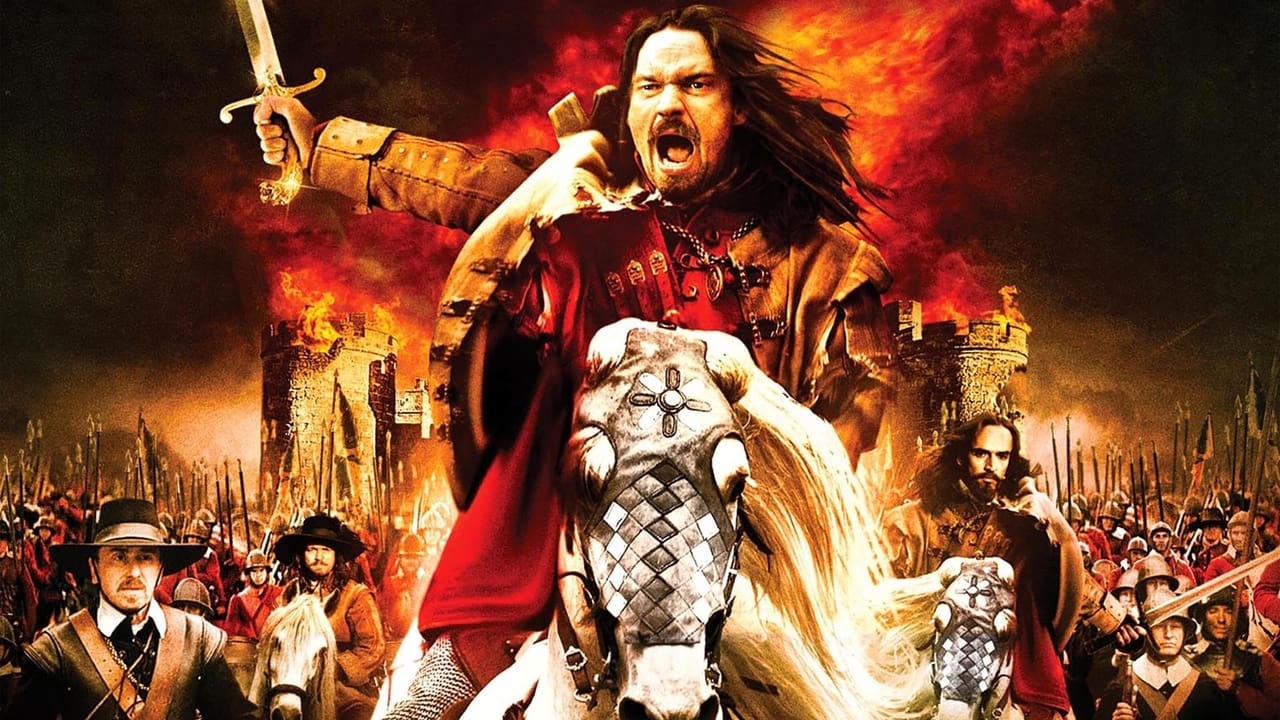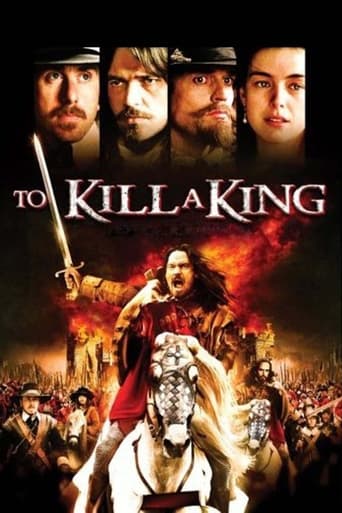Rijndri
Load of rubbish!!
BroadcastChic
Excellent, a Must See
Contentar
Best movie of this year hands down!
Sienna-Rose Mclaughlin
The movie really just wants to entertain people.
Dr Jacques COULARDEAU
1645 is a crucial year but what happened is not clear in this film that concentrates more on personal issues and intimate details than on historical facts.The rivalry between Fairfax and Cromwell is purely circumstantial. It is not the very problem at the heart of the period. Cromwell is the one who reformed the army to lead them to victory. Cromwell is the one who had the eloquence and religious depth to inspire that newly reformed army to victory a first time against the king, and a second time against the king, and several more times against the Irish, the Scots and Spain. The second civil war is not clear in the film at all, apart from gritty details about hangings, killings and battlefield deaths.The debate around parliament and the king is essential and reduced here to a clash between personalities, a clash between the authority of the military and that of the political branch of government. It also reduces Cromwell to pure violence, anger, fits of aggressiveness, etc. But that is not the debate. The debate is in the very nature of the king. In 1649 it is feudalism that dies on the scaffold, and not only the king. It is not the question of blue or red blood, but the question of who or what appoints the king, is it god or is it parliament, or even is it the people? That third alternative is absolutely absent, as if the film ignored the formula "the government of the people, by the people and for the people", at the end of another civil war.This period then changed Europe, true enough, but also the world, and the end of the film with a jump from "Cromwell's revolution" to the "French Revolution" is absurd. It ignores the Glorious Revolution and the dismissal of the King by parliament, the establishment of rules for the choice or designation of successors on the throne by Parliament then, and the Declaration of Independence in America that explains how the people is fully justified to dismiss a king when the relations between this king and his people have distended and even gotten ruptured. For the first time ever in the feudal world that included the colonies in America a king, Charles I, was dismissed by his people and the representatives of this people.The film is not clear at all on another detail: the fact that there must have been only a few tens of thousands of electors in England at the time to elect the members of parliament. Only the propertied free people who had real estate or a business (that could include as property serfs and other permanently or temporarily indentured human beings along with cattle and economic equipment) and paid taxes for these possessions or businesses could vote. The House of Lords had been disbanded and the House of Commons only represented the propertied and business-endowed tax paying at least well-off people, the bourgeoisie in another word. The film thus does not have to mention that seven members of Cromwell's family were at one time members of parliament.It also can speak of the people as an abstract concept. The bourgeoisie was essentially a mercantile bourgeoisie and they possessed the fleet of the country and employed all the sailors. The crown had no fleet per se. Parliament, or rather the House of Commons, or what was left of it after various purges, was in the hands of the merchants and under the pressure of their fleet and sailors, and both were armed to defend themselves on the sea they were starting to conquer from the sails of Spain. This armament could easily be turned around.That makes history easy then. There was no legal basis to dismiss the king, and what's more execute him in the whole world, I mean Christian world of course, and parliament "abused" their power in that case, and yet they wrote the world's history because after them there was a simple jurisprudence: a people has the right to dismiss their king if that king is no longer governing in the interest of that people. In a country of common law, that is an important argument. In 1215 at the time of Magna Carta, the barons and the church had imposed to the king a few measures but never did they question his authority that came from god almighty anyway. And we all know that since T.S. Eliot used the argument in his "Murder in the Cathedral".The result is a very dubious Cromwell and a very haphazard approach of history, and a very long and high jump from 1649 to 1660 and the Restoration. But it is from 1649 to 1660 that the most important events occurred in Ireland, in Scotland and on the Seas against Spain, all for the sole profit of the merchants and the overseas maritime companies that were starting to emerge.But it is always interesting to see something about this period which is still taboo in England. No surprise that the BBC is mostly absent from this field of historical study.Dr Jacques COULARDEAU
TudorLady
This film is absolutely dire! Not only is it historically inaccurate, it takes massive liberties with the character of Oliver Cromwell. The real Cromwell was honest, brave, faithful to his wife, family and religious principles. As it happens I disagree with his religious beliefs but I recognise that they were sincerely held. Living in a time vastly different to our own, Cromwell sought guidance from God in everything he did. He was also a highly skilled and dedicated leader of men. To suggest that he would randomly shoot someone in the street is frankly an insult. He was subject to severe mood swings, possibly even manic depression but remained an honourable man. I realise he is a figure who polarises opinion, and he is not particularly popular here in Scotland but he most certainly is not the bloodthirsty little thug portrayed in this film. Tim Roth was spectacularly miscast! By the way ianpb you clearly haven't done your homework, yes Charles was born in Scotland but as he left it aged three you could hardly expect him to have a Scottish accent!
paul2001sw-1
Many English people know something about the civil war of the 17th century; but the politics of the period between the end of the war and the execution of the king are little known. It's to the credit of 'To Kill a King' that it explores this interval, and it's quite interesting, but the film also has some flaws. Tim Roth plays an insecure Cromwell, but surprisingly, he fails to equip his character with sufficient charisma to convince; with Fairfax and the King himself, the other two leading players in this drama, also softly spoken, there's a certain absence of passion throughout. Moreover, the too-extensive score distances the viewer from the immediacy of the story, and the screenplay samples the events of the period without giving the impression that they are unfolding in real time. It's also a shame that the drama centres on personal politics only; the religious, economic and wider ideological divisions that underpinned the conflict are barely addressed. I still enjoyed the film, but see Channel 4's dramatisation of the life of Elisabeth I to see how the politics of another era can really be brought to life.
Greedytree
Apparently the filmmakers didn't even have time for the Cliff's Notes version of the English Civil War. Last time I checked, Oliver Cromwell was regarded even by his enemies as one of the foremost military minds in history. The New Model Army was his baby. And a biggot? The man welcomed the Jewish faith and open practice thereof back to England, for God's sake. As for comparing these events to the French Revolution/Reign of Terror, the FACT of the matter is that it was essentially the American Revolution...just a little ahead of it's time. (Something, no doubt, the Brits simply cannot contemplate.) Sad, silly, revisionist stuff.

